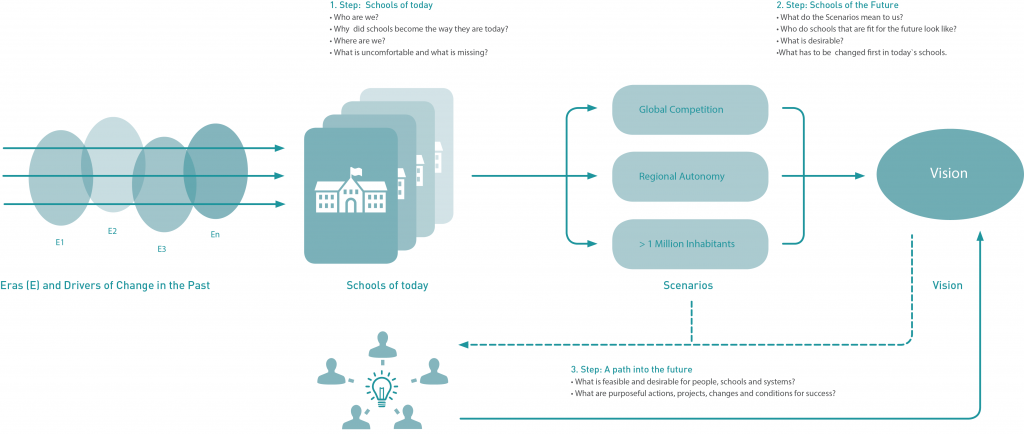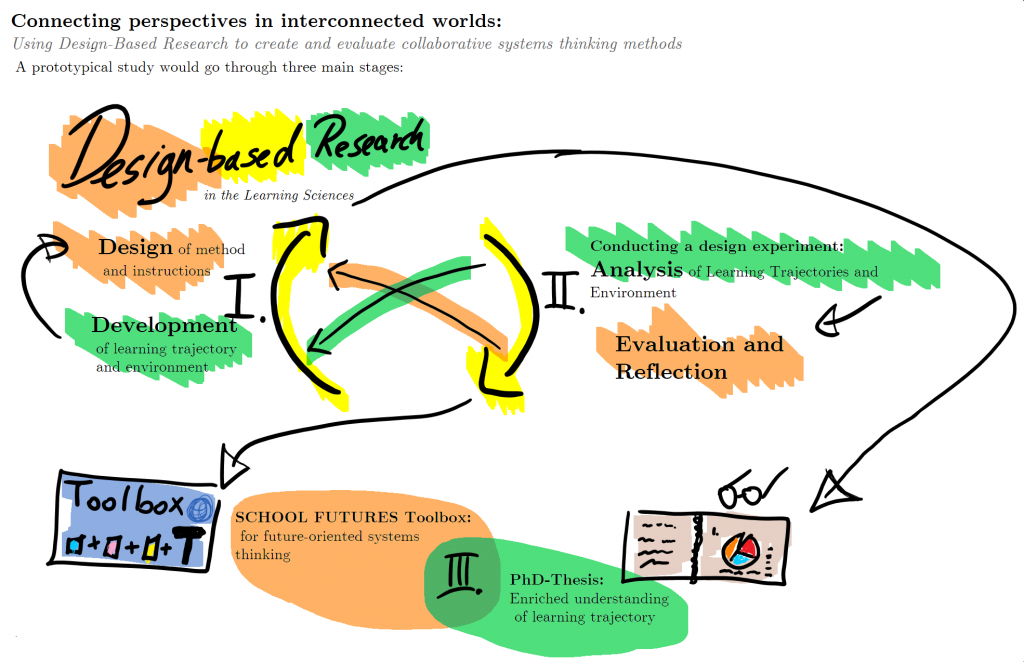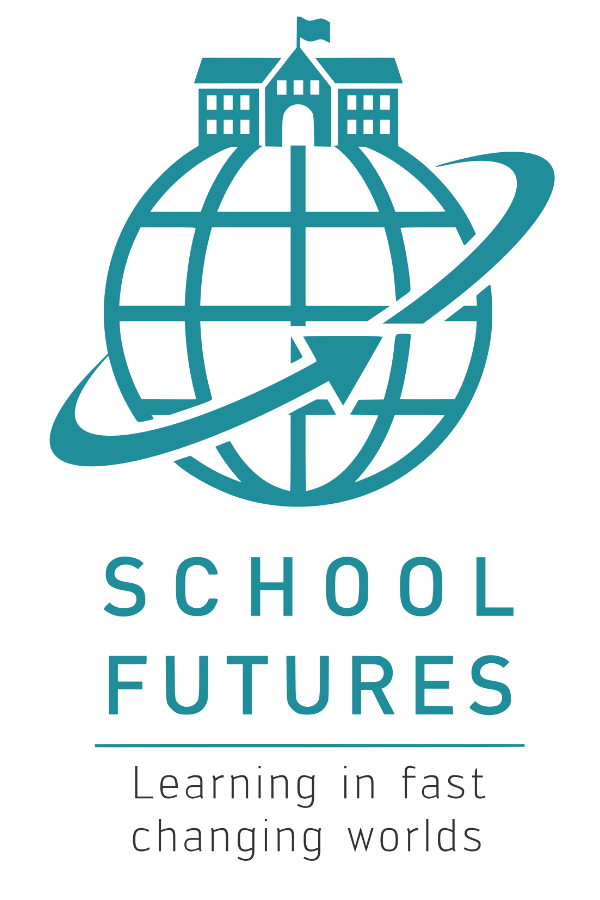The Methods – The SCHOOL FUTURES methods are refined iterative over the entire duration of the project. Up-to-date Materials can be requested an any point in time through the contact form.
All collaborative methods developed to underpin social learning and reflexive monitoring for sustainability in practice are also trialed and further developed in partnering research projects and certificate teaching courses at the University of Luxemburg. These methods include collaborative conceptual systems mapping; scenarios to embrace open futures, uncertainties risks and ignorance as a necessary step for developing social robust visions; and participatory design aiming to co-create a (knowledge) base for concerted action across different stakeholders and engaged citizens. The methods will be compiled into a modularized toolbox that can be used with students as in-class or in multilevel-stakeholder workshops.
All methods for collaboration aim to foster dialogue across and about differences in expertise and interests on what matters most for improved self-organization on concrete sustainability issues in complex dynamic social ecological systems.
Working with Futures: Scenarios, Visions and Forecasting
Working with futures, and qualitative scenarios and visions in particular, offers a flexible forward looking process for assessing interdependent changes in society, technology, the economy and the environment with a systems approach. The process can help to combine and cross-question assumptions underlying concepts, qualitative and quantitative data and methods in a systematic manner, as well as to map differences and possible contradictions from people with different expertise, interests and word views. The process allows to embrace value pluralism and based on that understanding to develop more socially robust recommendations for change intentions and action.
At the Athénée the decision was taken to develop a school vision in a participatory process, to assist the formal process for the development and implementation of a new school development plan that responds to invitations from government to make proposals for reforming thematic tracks within middle and upper school.

Systems thinking in practice – The method of collaborative conceptual systems mapping (CCM) and what it can add to a classroom or a school development workshop
Dialogic learning – Based on the Works of Neil Mercer and Rupert Wegerif
… (work in progress)
Evaluating Future Learning – approaches for evaluation of systems thinking and dialogic learning
… (work in progress)
Research and Methods Design – SCHOOL FUTURES uses a Design-Based Research Approach (DBR) due to its double-tracked output arrangement.
On the one hand, the development and field-testing of methods ensures, that research (grants) have a direct impact on classroom level. Normally, “the product” is designed in tight feedback loops with the final users, i.e. the teachers and students. Ideally, methods are already picked up by teachers who helped to develop them. Otherwise, the rich documentation of the process will allow for a facile deployment of teacher training modules.
On the other hand, PhD Students and other researchers a can enrich their understanding of learning (trajectories) in a way, that goes beyond a mere pre-post intervention testing.
While traditional educational research often focuses on either (fundamental) learning research or, vested usability of the final product, design-based research does both. Therefore, its agenda differs from the relatively delimited case study research and defines iterations rather than completion phases.
Once we have successfully designed methods that work in various settings – and have monitored emergent cultures of (dialogic) learning – we should be able to understand and formulate supporting conditions and pre-requisites for successful learning.




